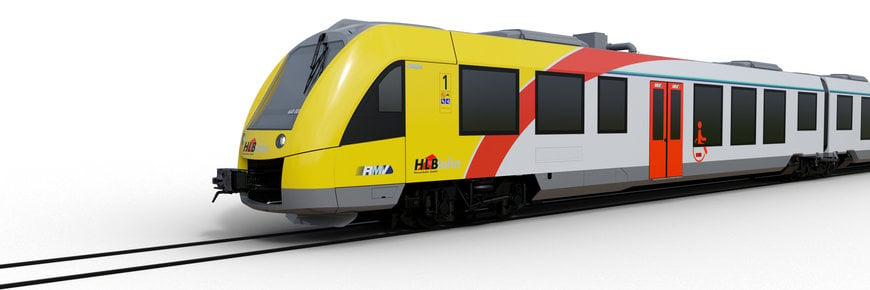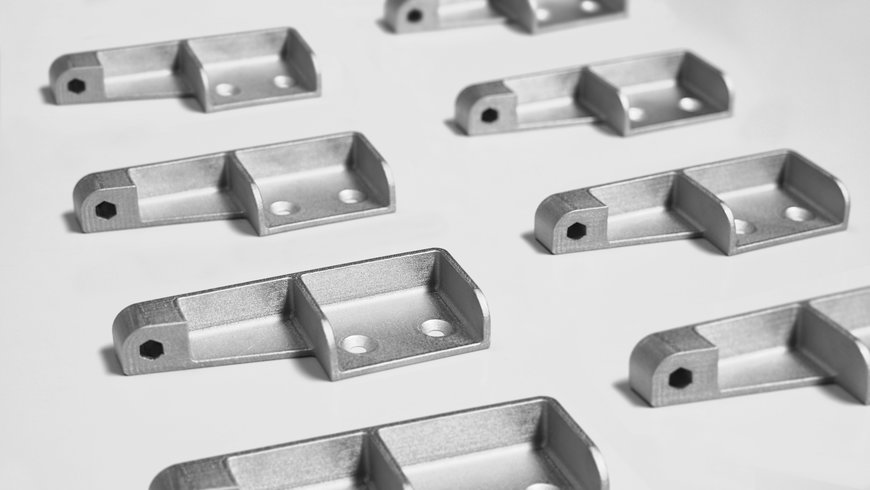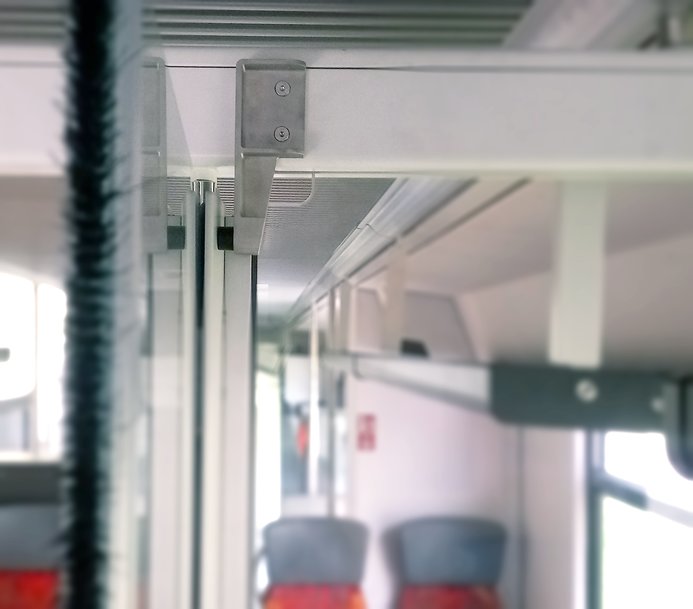Alstom Partners with Replique to Implement First Serial Production Part Using Additive Manufacturing
Alstom, a global leader in green and smart mobility, is using Replique's on-demand 3D printing/additive manufacturing platform to produce customized industrial-grade serial parts. By digitizing its supply chain, Alstom can now produce small batches on demand and decentrally.

- In collaboration with Replique, Alstom qualifies a visible metal part for the first time for additive manufacturing serial production
- With access to Replique's worldwide technology and production network, Alstom reduces the complexity within procurement and production
- Replique's industrial expertise enables the selection of cost-efficient and qualified materials and production methods
This enables the company to respond even better to its customers' needs. Replique reduces the complexity within the supply chain so that first series are not only produced faster, but also cost-competitive.
"Additive manufacturing is now a key part of our supply chain. With Replique, we benefit from 3D printing and materials expertise, as well as a decentralized manufacturing network covering all relevant locations and technologies. Their end-to-end services enable us to respond faster and more cost-effectively to different customer requirements," says Ben Boese, 3D Printing Hub Manager of Alstom Transport Deutschland GmbH.

Global technology access through Replique's 3D printing platform
In train manufacturing, small batch sizes lead to high manufacturing costs due to the production of molds and other tools. 3D printing can solve this challenge by eliminating fixed costs. As a result, parts can be produced economically even in small quantities. Alstom has already taken advantage of the technology within the production of spare parts. Now, they can also fulfill specific customer needs using additive serial production.
Since Alstom operates worldwide and each train component has different requirements, they need a scalable solution for decentral manufacturing in industrial grade quality. Alstom therefore works closely with Replique, leveraging the expertise and capabilities of a 3D printing network where all partners are carefully selected and qualified.
"The additive manufacturing market is still very fragmented, which makes it impossible for end users to find an optimal solution for each part. With Replique, we benefit from all major additive manufacturing technologies and materials from a single source. In addition, we receive optimal technological preparation," says Boese.
First series release for additively manufactured train part
The flexibility of Replique's platform is shown in a first use case within Alstom's OEM business. To meet a specific customer request, Alstom needed several doorstoppers for a partition door that will divide the passenger compartment of a diesel multiple unit into a first and second class. The small number of such components is usually an obstacle to initial production and typically, it comes to project delays as a result of long delivery times. Therefore, Alstom chose additive manufacturing as the production method.

Replique assisted Alstom with material and technology selection and was able to qualify and deliver the doorstopper for serial production within just 1.5 months. During this process, the doorstopper went through the protocols of initial sample testing and assembly and received the final approval for series production.
"We were able to produce the doorstopper in a cost-neutral manner compared to conventional methods. Within the near future, we plan to further exploit the technology's potential by creating topology-optimized designs of new parts, or even make them lighter by using reduced infill," explains Boese.
Advanced materials enable cost-efficient additive manufacturing of the doorstopper
To enable on-demand production, careful qualification including the selection of the right material is crucial. The doorstopper must not only fulfill its function over the entire service life of the train, but also meet high aesthetic standards, as it is a visible part inside the train compartment. Stainless steel meets these requirements. Of course, the doorstopper should also be manufactured cost-efficiently.
Thanks to FDM 3D printing with Ultrafuse® 316L fromForward AM, brand of Replique's material partner BASF 3D Printing Solutions, followed by debinding and sintering, Replique was able to significantly reduce costs compared to other additive manufacturing processes, such as powder bed with 316L.
"Alstom has already shown in the past how 3D printing can be integrated in a lean and cost-efficient way. They are pioneers in additive manufacturing, and we look forward to supporting them on their journey to simplify and fully digitize their supply chain for all printable series and spare parts," says Dr. Max Siebert, CEO and founder of Replique.
www.replique.com

